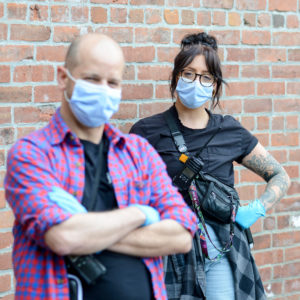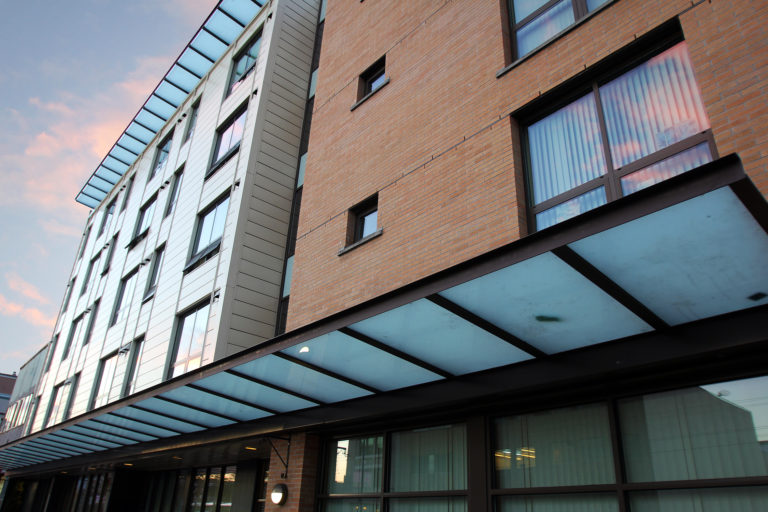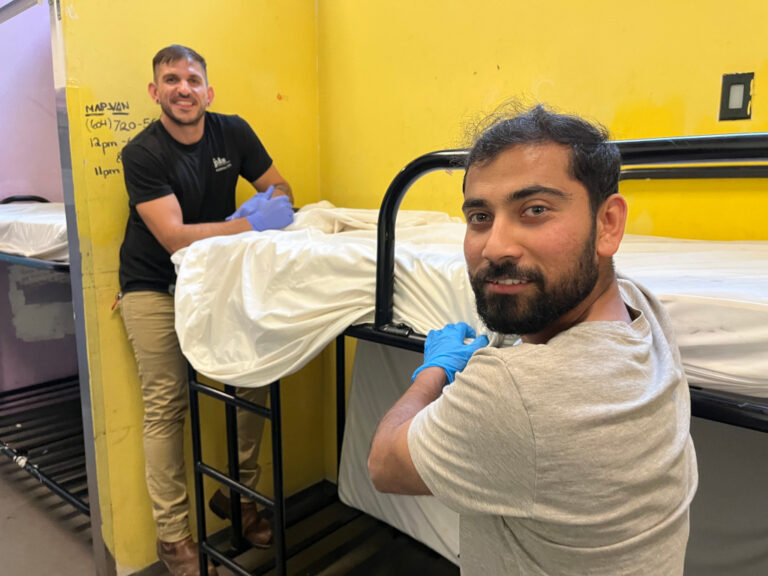Mental Health Workers are the heart of frontline PHS operations in Victoria and Vancouver.
These dedicated individuals work together within our housing projects and programs to address the day-to-day needs of our residents and of the project as a whole. In short, they keep things running smoothly.
With services expanding in response to the pandemic, we’re urgently hiring casual Mental Health Workers. This position pays $30.46 per hour plus 10 per cent in lieu of benefits, with an additional $2.50 per hour if working nights.
However, the job title doesn’t necessarily paint the full picture.
Being a PHS Mental Health Worker involves supporting PHS residents and participants who may or may not have mental health diagnoses. They might be active substance users; they might have been homeless until some point in the recent past.
Quality of life
Our focus is on increasing the quality of life for people who have often been marginalized and frequently share histories of trauma.
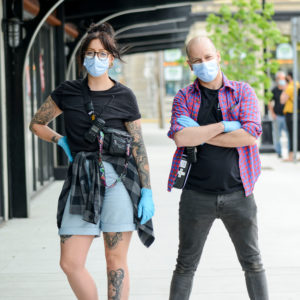 “We’re not here to tell people what to do with their lives,” said Maddox, a Mental Health Worker with PHS Victoria for the past four years.
“We’re not here to tell people what to do with their lives,” said Maddox, a Mental Health Worker with PHS Victoria for the past four years.
“I believe personal autonomy is one of the most important things we can give people. It’s about allowing people to realize their own strengths and make their own decisions.
“The job is problem-solving and supporting residents. It might be supporting people that feel isolated, or else reaching out to the Ministry of Social Development and Poverty Reduction, or Legal Aid, or working with housing services.”
Currently at The Soleil, Maddox works three 12-hour shifts Monday through Wednesday, finding four continuous days off each week helps with study. She’s just completed a Community, Family and Child Studies diploma at Camosun College, Victoria, and is next to pursue a bachelor’s degree in Public Health and Social Policy.
Support & consistency
“The team I work with are some of the best people I’ve met in my life,” she said. “They care about others, but in a way that’s larger than them. It’s not about ego.
“We’re not coming in to save people, we’re supporting them. You remove yourself from the experience, which is a difficult thing to do.
“Above all we provide consistency. People come to us with questions, or if someone is in distress and asks for help. We’re here for when they need us.”
The most powerful tool for a Mental Health Worker is humility. There’s a large element of de-escalation required, along with boundary setting – there’s a big difference between rapport and relationships, so staff need to be understanding but professional.
Meaningful career
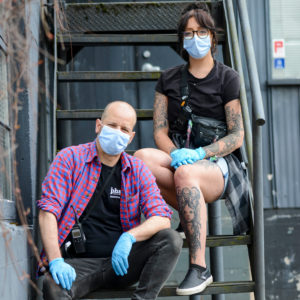 Fellow Victoria Mental Health Worker Thomas has been working for PHS for around three years, seeing the Mental Health Worker role as providing a career and a source of meaning.
Fellow Victoria Mental Health Worker Thomas has been working for PHS for around three years, seeing the Mental Health Worker role as providing a career and a source of meaning.
“Some of our best people are not going to school for social work, sometimes they are people whose experience comes from working in the service industry and are into harm reduction,” said Thomas.
“I was a DJ in Montreal and threw after parties. Sometimes I was my own bouncer, there were a lot of people drinking, and It was important to try to create a safe space.
“I think this gave me great tools when it comes to being a Mental Health Worker, but more than that it taught me about community building and creative thinking which I find is really at the heart of what we do.”
Build connections
He says the best way to begin helping someone with their mental health is to offer to help clean their room to build a connection.
It takes time and effort to build respect, with the hard part being not taking residents’ setbacks personally. Ultimately, it’s about enabling individuals to make their own choices and learn from outcomes, and their progress is not necessarily linear.
“If someone is agitated, sometimes the best thing you can do is give them the space they need to express why they are angry. They just need to be heard first, and then you can have a productive conversation.”
- Interested in applying? Want to know more about the position? Check out the job description.
